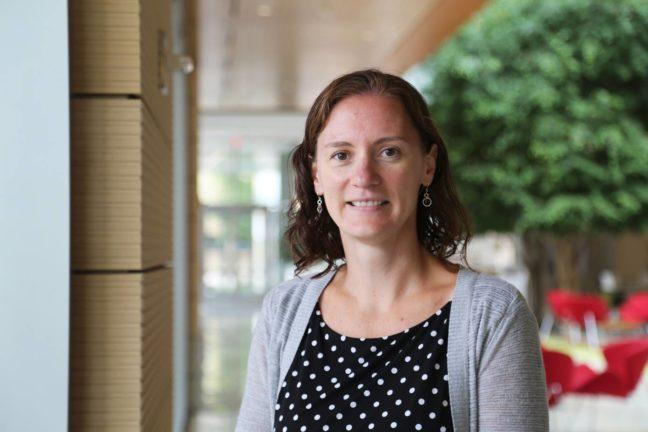For Melissa Skala, patience was never a virtue.
Skala, a cancer research investigator in the Morgridge Institute for Research, likes fast-paced learning and collaborative environments. She believes this is especially valuable in scientific research, where progress can move very slowly, she said.
But after attending the 2017 Stand Up To Cancer summit, she found it refreshing to quickly advance her hypothesis to laboratory testing in under 24 hours.
“The cool thing about this conference is they incentivize you actually doing the thing you talk about,” Skala said. “All you got to do is write 250 words. If it’s a good idea, [SU2C] will give you the money to do it. Rather than just dreaming away in your office, you actually get stuff done. It’s the way science should be.”
SU2C announced last Monday that Skala was one of four recipients of the Phillip A. Sharp Innovation in Collaboration Award this year. Skala shares the $250,000 award with MIT biology professor Matthew Vander Heiden, with whom she collaborated on her research proposal exploring the interactions between pancreatic cancer cells and regular cells surrounding tumor tissue.
The Sharp Award encourages “innovation in collaboration” for the purpose of advancing cancer research, and therefore requires researchers to work together on a submission proposal to be eligible for the award. Skala, however, had only met Heiden once before partnering with him on this project.
“I actually didn’t know who he was the first time I met him,” Skala said. “He’s published the seminal papers in this area and I realized that after we got the grant I thought, ‘Oh man, I hit the jackpot with this guy.’”
Skala found it engaging, and even inspiring, to work with Heiden to brainstorm novel approaches and technologies to combat cancer.
More importantly, she was able to secure funding for the execution of a high-level research project through this competition, a step she doesn’t appreciate in the grant-writing process.
“You don’t have to do all the administrative forms and budget and that stuff. It’s just soul-sucking,” Skala said. “You get to do the science. It was actually very little pressure because it’s fun.”
Skala said that while she benefitted from receiving an award for her scientific vision, the important part of research is actually executing the idea. The real challenge is to prove the science in the lab, and she has no time to waste with a disease like pancreatic cancer.
Skala had a background in breast cancer research originally, but she began to change her research interests after a conversation with the surviving spouse of a cancer victim.
“I knew everybody died from pancreatic cancer, but I didn’t put two and two together that there’s a lack in advocacy in research because there’s just fewer people alive who have the disease who are banging their fists on the table saying ‘You need to study this, we need to make progress on this deadly disease,’” Skala said.
According to a 2013 United States Cancer Statistics (USCS) study, in the United States pancreatic cancer has a 5-year survival rate of 8.2 percent overall, which is significantly lower than higher-incidence cancers like breast, 89.7 percent, and colorectal, 64.9 percent.
As she continued to learn more about pancreatic cancer, Skala said the statistics convinced her that she needed to participate in this area of research.
“There’s such a great need for progress in pancreatic cancer because 90 percent of the people die who are diagnosed with this disease,” Skala said. “We’re actually making great progress in most cancers except for [pancreatic cancer]. It’s the next big need and I wanted to be a part of that.”
Skala echoed her earlier sentiments that scientific research moves slowly, but she believes her advancements in medical imaging and processing can eventually create a breakthrough in medicine.
Her recent award is already assisting in her mission to develop a technique to help patients now, so they can have a better quality of life with pancreatic cancer.
“It’s a huge win if you take something from the lab and actually affect standard care for cancer patients,” Skala said. “If they’re going to go through therapy and they’re going to go through that psychological and physical stress, I want the drug to work. If we can get there, that’s huge.”


